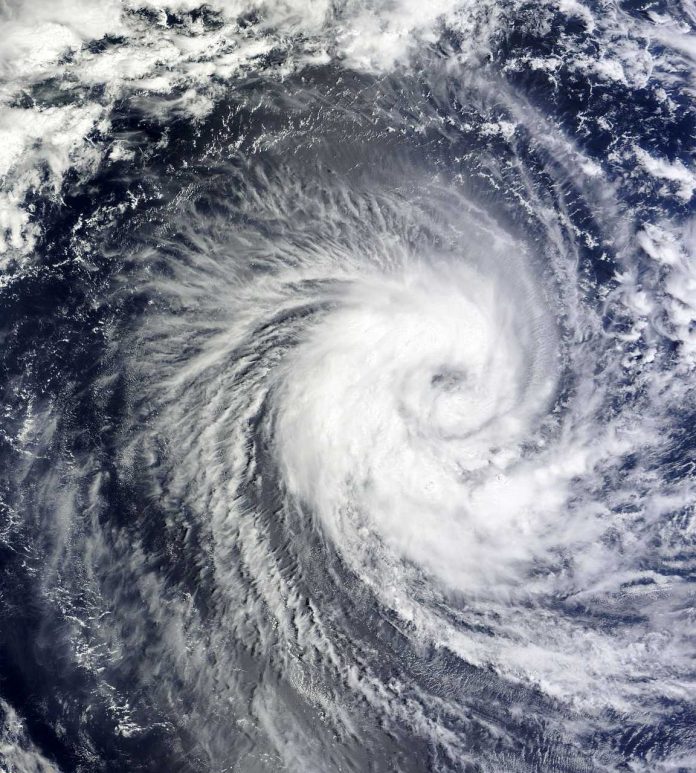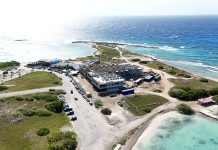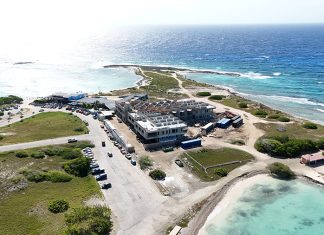Hurricane season is the time of year—usually from June 1 to November 30—when tropical or subtropical cyclones are more likely to form.
These dates mark the period in which most tropical activity occurs in what’s called the “basin.” However, it’s important to understand that storms can still form at any time of the year; the difference is simply that the likelihood is much higher during this official season.
Globally, this season’s climate activity usually peaks toward the end of summer, when the difference between air temperature and ocean surface temperature is greatest. In terms of months, this tends to be from late August through September, with peak activity around September 10. Still, since this involves nature, nothing is guaranteed—it’s all based on calculations and predictions. Sudden changes are always possible.
These tropical or subtropical cyclones that reach tropical storm intensity often receive a name from a predetermined list. On average, 14 named storms occur each season, with an average of 7 becoming hurricanes and 3 reaching major hurricane status—Category 3 or higher on the Saffir-Simpson scale. The most active season on record was in 2020, with 30 named tropical cyclones. However, the 2005 season had the most hurricanes, with a record 15 forming.
According to news outlet NPR and meteorological experts on our neighboring island Curaçao, with whom Aruba collaborates on various meteorology matters, the need for proper preparation is absolutely critical. With just one storm, a season can be not only active but also potentially devastating for your country or even just your neighborhood.
A common misconception is that a hurricane must come close to cause damage. However, hurricanes have a wide range of effects.
Even storms that don’t become hurricanes can cause deadly flooding, and experts say water-related dangers account for the highest number of hurricane-related fatalities. The impacts of flooding and wind can be felt both near and far from the coast, and such impacts can be very serious, whether caused by a hurricane or tropical storm. In addition, scientists note that climate change means storms are bringing more rain, flooding, and damage faster to coastal areas. The director of NOAA’s National Hurricane Center said in a press conference last week that especially in flood-prone areas, it is crucial to understand that freshwater flooding is a significant source of recent losses.
Emergency preparedness
According to experts, having an evacuation plan is important. Whether or not you believe an evacuation is likely, preparation is key for any unexpected scenario. If you do find yourself needing to evacuate, having a planned route ahead of time can be crucial to reaching safety. And of course, we should always include our pets in our preparation plans.
Other important forms of preparation include strengthening and cleaning around your home. Trim trees near your home to prevent broken branches or flying debris in strong winds. Make sure you have the necessary materials on hand in case you need to suddenly secure windows and protect them from flying objects. At similar wind speeds, it’s also important to bring indoors or secure anything loose in your yard. These objects can become hazards not only to your house but also to nearby homes.
Aruba Today had the opportunity to speak with Aruba’s meteorologist, Mr. Rodney Tromp. He shared that a hurricane doesn’t need to hit directly to cause damage. We already know that heavy rainfall can cause damage, especially when combined with lightning and thunder, and the extent of damage depends on its intensity. It’s important to be aware of this and prepare accordingly. DOW is doing its part to prepare, as are the CMO, Disaster Response Bureau, and the Aruba Meteorological Department. But it’s equally important for us, the community, to do our part in preparing for the season.
Reliable information matters
A key piece of advice is to always stay updated through your local meteorological service and the National Hurricane Center. Today, social media has many channels that provide weather information, which can be helpful, but they often lack professionalism and may cause panic, as Mr. Tromp shared.
The panic aspect is particularly difficult for meteorological services to manage. “A lot of disturbances come off Africa, but not all reach us. Some may appear to be heading here in 20 days, but it’s still far off, and many things can change in those 20 days,” he explained. Don’t panic—stay informed and monitor developments. Our meteorological department will continue monitoring with depth and precision.
Observations for this year
This year, the seasonal trade winds started a bit late, with strong winds only beginning to register about two to three weeks ago. This may suggest that the season “shifted slightly,” and in recent years—especially the past three—the hurricane season has started 1 to 2 weeks earlier. That’s due to very warm Atlantic waters. “In the past three years, you could already feel the heat between May and June,” Mr. Tromp explained.
He also noted that August and September will likely be the hottest months this year, while June, July, and August are expected to be drier months. “Even if it stays dry, a strong hurricane passing near our region—either in the Caribbean or just north of it—can still bring rainy periods. One event can change everything,” Mr. Tromp said.
“It only takes one storm to make it a bad season.”
We’re dealing with nature—anything is possible, even if the chances are small. Aruba lies just outside the “hurricane belt,” but experts at the Hurricane Center and climate scientists warn that if temperatures keep rising, this belt could expand. Our only natural advantage is our proximity to the coast, but you never know,” Mr. Tromp said.
A key takeaway from the conversation is how essential preparation is, and how important it is for us to remain aware that even if we are “safe” from a direct hurricane hit, other factors or events can still cause damage. That’s why preparation is vital so we can be ready to deal with whatever comes our way on the island.
















